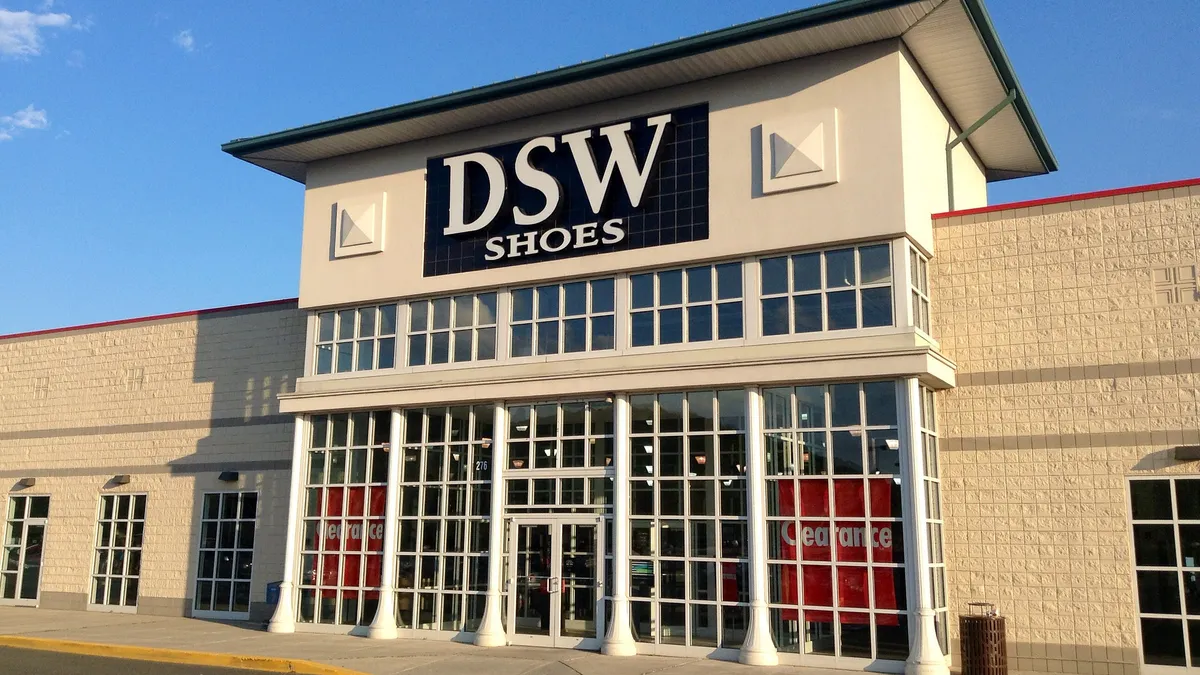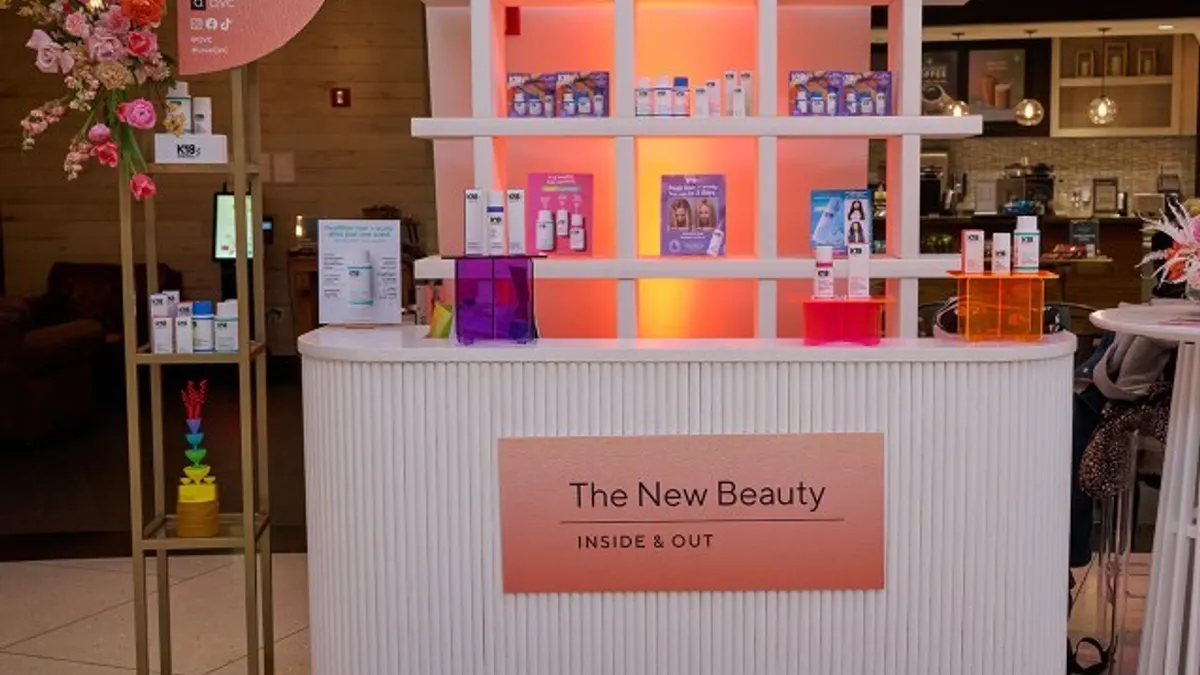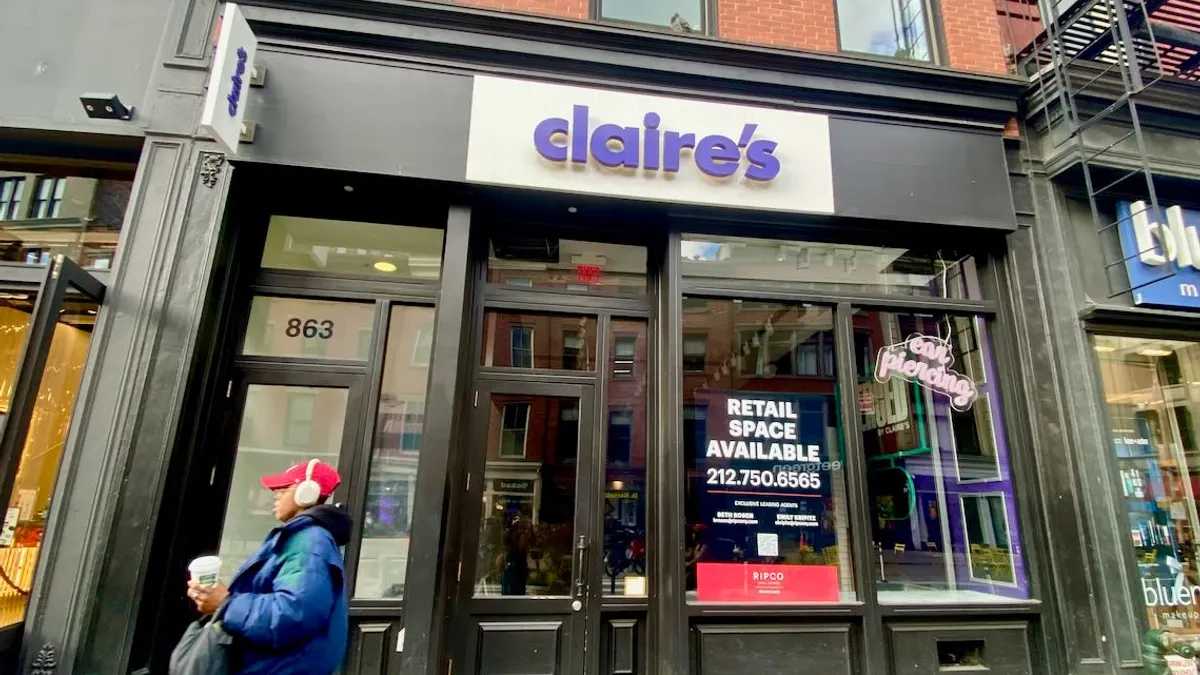It's taken a couple of years, but every DSW store will now have a kids section, satisfying a customer need that was apparent during the back-to-school season — and that's not the only change the footwear retailer has recently introduced.
The company also restructured its loyalty program in May, opened an experience-driven store concept in Las Vegas and announced it would shutter both the Ebuys and Town Shoes branches of its business.
The changes reflect a larger focus on innovation for the footwear retailer, as well as on the millennial demographic, which was being turned off by some of the retailer's decisions, according to Simone Pace, DSW's senior director of marketing strategy.
"When we've got customers that end up having kids, they were departing the brand," Pace said. "Not all of them, but some of them — and that's because we became really less convenient by virtue of the fact that we sort of weren't a one-stop shopping location for her any longer."
Reading the customer
DSW Kids is part of that solution. According to Pace, the company opened their latest store in Las Vegas without a kids department, but upon seeing the number of parents and families walking in, they reversed that initial decision. The millennial generation, which tends to be focused on convenience and price, is becoming "more and more important" for DSW, and since so many of them are now raising families, DSW is too.
"We discovered that inadvertently, by not carrying the kids product, we weren't really giving her a choice," Pace said of the millennial DSW customer. "They're really the largest segment or generation right now that's having kids, so that's really the second driving reason was we saw a market share capture opportunity."
DSW isn't the only company seeing an opportunity in the kids market this year, especially as it relates to apparel and accessories. Retailers from Warby Parker to Stitch Fix have announced new offerings for children. Subscription services seem to be a particularly popular spot for retailers to tackle the demographic from, with several companies launching or expanding kid-specific subscription offerings. Amazon launched a children's book subscription this year, while Target turned its popular private label Cat & Jack into a boxed service and Gap Inc. expanded its subscription offerings with a children's sleepwear box.
So far, the DSW kids rollout has been smooth, and Pace notes that the company has seen "significant attachment rates" in the category, with many adult customers coming in to shop for themselves and adding children's products to their baskets.
That being said, kids aren't the only customers DSW is trying to impress. The retailer's loyalty revamp puts the customer "at the forefront" and was built in the hopes of better keeping in touch with loyalty members, which are often the most lucrative customers (just ask Amazon how willing consumers are to pay for Prime benefits). To that end, the new loyalty program uses more of a "frequent-touch model," offering customers rewards on a more constant basis so that customers won't have to wait long periods before receiving another offer from the retailer.
"We felt that with a lot of changes in customer expectations and how she's shopping these days and what's really important to her and to him, we wanted to even do more than dust it off," Pace said. "It was a wholesale revamp — it was a big deal for us."
The new loyalty program has three tiers, VIP Club, VIP Gold and VIP Elite, with increased rewards for higher tiers. All members receive $5 rewards for every 100 points earned, but VIP Club and VIP Gold earn 1 point for every $1 spent, while VIP Elite earns 2 points for every $1 spent, and VIP Gold and VIP Elite members also enjoy early access to exclusive offers and events. All loyalty members have the option of donating shoes that are in good condition and receiving 50 rewards points in return.
A robust loyalty program, if it's popular with customers, could also come in handy when courting millennials, as the generation is the most likely to remain loyal to a brand that has a rewards program, according to a Yes Lifecycle Marketing study.
The innovation pipeline
Footwear isn't the strongest sector to be in right now. According to data from Euromonitor, the footwear market grew just 13% in 2017, though sports footwear — a bright spot in the segment — grew 46%. Still, it hasn't been an easy couple of years in the category, with Payless and Nine West filing for bankruptcy and the latter ultimately selling its brands to Authentic Brands Group (which beat out DSW for the bid).
As with many retailers, DSW is leaning — in part — on an experiential strategy to draw in more customers, but only in spaces where it fits. Most recently, that meant a drastically downsized store on the Vegas Strip that featured a "Shoevator," which operates like a vending machine. While Pace noted that the Vegas store is somewhat of an anomaly, the retailer is using a lab store in Ohio, called Polaris, to test out services and other concepts before deciding whether to roll them out to stores.
One of the products of that system was the nail bar, which developed from an existing relationship with a local nail bar in Columbus, Ohio. While it might seem like an odd addition to a shoe store, Pace says the result has been "a resounding yes" from customers. Still, nail bars likely won't be showing up in every DSW store going forward, though the company does have plans to roll them out to more stores in fiscal 2019.
"They're going in, they're getting their nails done and they're doing a bit of shoe shopping," Pace said of the nail bar, adding later that much of the process at Polaris is based on customer feedback. "We'll test in Polaris and really understand what's working, what's not. We go in, we'll do shop-alongs with customers, exit interviews, try to understand what they liked and didn't like and who they are — and then go from there."
Along with that service, DSW has also started offering shoe repair, which has only just moved beyond Ohio to open in some New York City stores, and Pace noted that the retailer is testing other partnerships as well.
"We [are] looking for and uncovering white space opportunities in our business — we do have a separate, little, very scrappy innovation team and they're comprised of people who are not afraid to test and fail, which is what you need."























